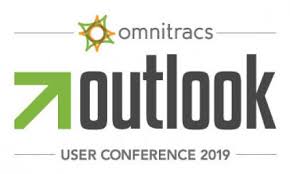Several factors disrupting the future of the transportation industry
DALLAS, Texas – Numerous societal trends are changing the direction the trucking industry must steer into the future, including urban congestion, an aging population, and the impact of evolving technologies.
Susan Beardslee, principle analyst for ABI Research, highlighted where she sees the industry going in the coming years during the Omnitracs Outlook User Conference in Dallas today, saying there is no single or “go it alone” approach that will work, and strategic partnerships will be essential.
Some of the influencers driving this change include recent moves by logistics and supply chain leaders. Beardslee pointed to efforts by companies like Amazon, which will create a million square foot fulfillment, transportation, and supply chain center in Nashville, Tenn., and same-day delivery startup Deliv that garnered $40 million in funding, including from Google and Enterprise Holdings, as examples.
Government regulations are also impacting the industry.
The Federal Motor Carrier Safety Administration (FMCSA) Dec. 16 deadline for the use of automatic on-board recording devices (AOBRD), and its subsequent drug and alcohol clearing house policy anticipated in January are two areas Beardslee said will force the industry to change.
A Federal Aviation Administration bill is also expected to permit drone-based deliveries in the U.S.
An aging and diminishing pool of qualified drivers has long been distressing the industry, a trend that is anticipated to persist for some time.
To combat the shortage, Beardslee said companies have made several efforts, but with little results.
“Even higher wages has had limited impact,” she said, underscoring Walmart’s increase in driver pay to $87,500USD annually for those with a three-year accident free history.
Other efforts include a pilot program for 18- to 20-year-old veterans and Uber’s new division, Powerloop, which offers $25 per day trailers-as-a-service in an attempt to reduce detention time.
Beardslee said some companies are turning their attention to rail for their shipment needs in the wake of the driver shortage.
Electric, battery electric, and hybrid vehicles is another way the industry in changing for the future.
Though Beardslee said these alternative vehicle options are not yet suited for long-haul applications due to range issues, they do fit into other markets. University campuses, municipal buses, last-mile deliveries, and refuse applications are areas Beardslee sees the technology thriving.
She claimed that in extreme cold weather conditions, electric vehicles can experience up to a 40% drop in efficiency.
Automation also continues to progress.
With companies like Isuzu Motors releasing the NVIDIA Drive AGX, and Waymo, Starsky Robotics, and TuSimple all testing driverless trucks, Beardslee believes this technology is a driving force for change in the industry.
“There is certainly a lot of testing going on,” she said, adding that autonomous commercial trucks would not eliminate the driver, but rather change their role as it is performed today.
Blockchain is another major factor altering the landscape of the trucking industry.
A decentralized and distributed public ledger that allows secure transactions and uses distributed consensus and cryptography to create an authoritative record, blockchain tracks products from source to customer.
It provides proof of certification, compliance, quality control, and testing with an audit trail, transaction history, and product traceability.
In the next three years, Beardslee expects the use of blockchain to increase.
Some areas where she does not see rapid movement in the future includes platooning, single carrier shipping systems, and the amount of ELD options. Beardslee said ELD providers have been dropping in numbers in the U.S. in the lead up to the AOBRD cutoff date.

Have your say
This is a moderated forum. Comments will no longer be published unless they are accompanied by a first and last name and a verifiable email address. (Today's Trucking will not publish or share the email address.) Profane language and content deemed to be libelous, racist, or threatening in nature will not be published under any circumstances.